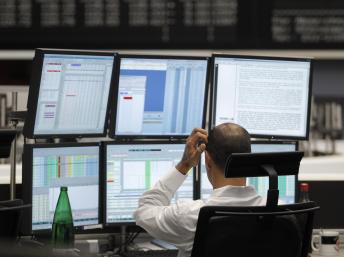Financial technology is no longer reserved to the trading floor of the New York Stock Exchange or the teraflop supercomputers of major trading firms. If you have a smartphone you use for banking, you are using technological innovations that are accelerating the speed of financial transactions. Many of the most common financial activities like filling a tank up with gas or buying groceries are now harnessed to hidden financial technologies.

Financial Technology
What characterizes financial technology is its speed, analytical power and predictive capacity. Going back fifty years, before the introduction of the internet, financial transactions, even at the highest and most efficient levels, took place at a snail’s pace. What took minutes then is now handled in microseconds. This has utterly altered the financial landscape; human participation in many of the trades and day to day activities in financial markets can be limited to broad oversight of the computational devices that actually initialize and complete billions of transactions. Humans have been sidelined from the grunt work of actually conducting transactions and charged primarily with maintaining the technology that does.
Role of Financial Managers
This isn’t to say that there aren’t numerous responsibilities for financial professionals. Of course, these professionals must interface with the technology and other parties like regulatory agencies, clients and business partners. They must also define the broad outlines for financial strategies. The details of complex financial transactions may be left to software, but determining whether a series of actions and the risks associated with them are acceptable remains within the human domain.
The management of risk is often a qualitative judgment and one requiring sentient input, but the role of financial intelligence is to provide insight into present and impending business conditions. Whether you are the head of a titanic Wall Street brokerage or you are a small business owner in Boise, Idaho, the compelling need to know what to do is driving the rapid evolution of financial technology.
Widespread Use of Financial Technology
Using your mobile device to access your bank or credit card account before you make that big ticket purchase is a common example of technology that was once reserved for the higher echelons of the financial hierarchy and is now trickling down to the masses. Cloud computing, predictive analytics and big data may not be common terms, but the applications they support, like mobile credit card readers and ATMs are in widespread use and have remolded social behavior.
This behavior is having an effect on technology as well. The rise of social networking is creating new modes of financial activity like social banking and comparative lending. The constant interaction between technology and user is a complex series of actions that alters both parties.
That is why many of the biggest names in investment banking and venture capital are scrutinizing emerging financial technologies. Big players like FT Partners Steve McLaughlin are investing heavily in the IT that underpins the billion dollar transactions on bond and currency markets as well as the purchases of hot dogs at the ball park. Financial technology that is on the horizon today can be implemented and dominating the world in a heartbeat.
